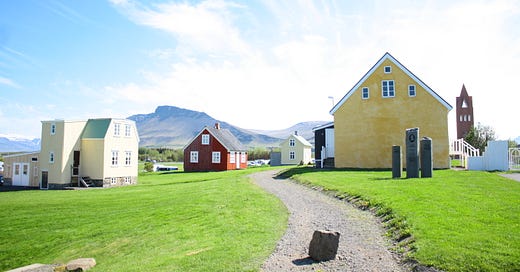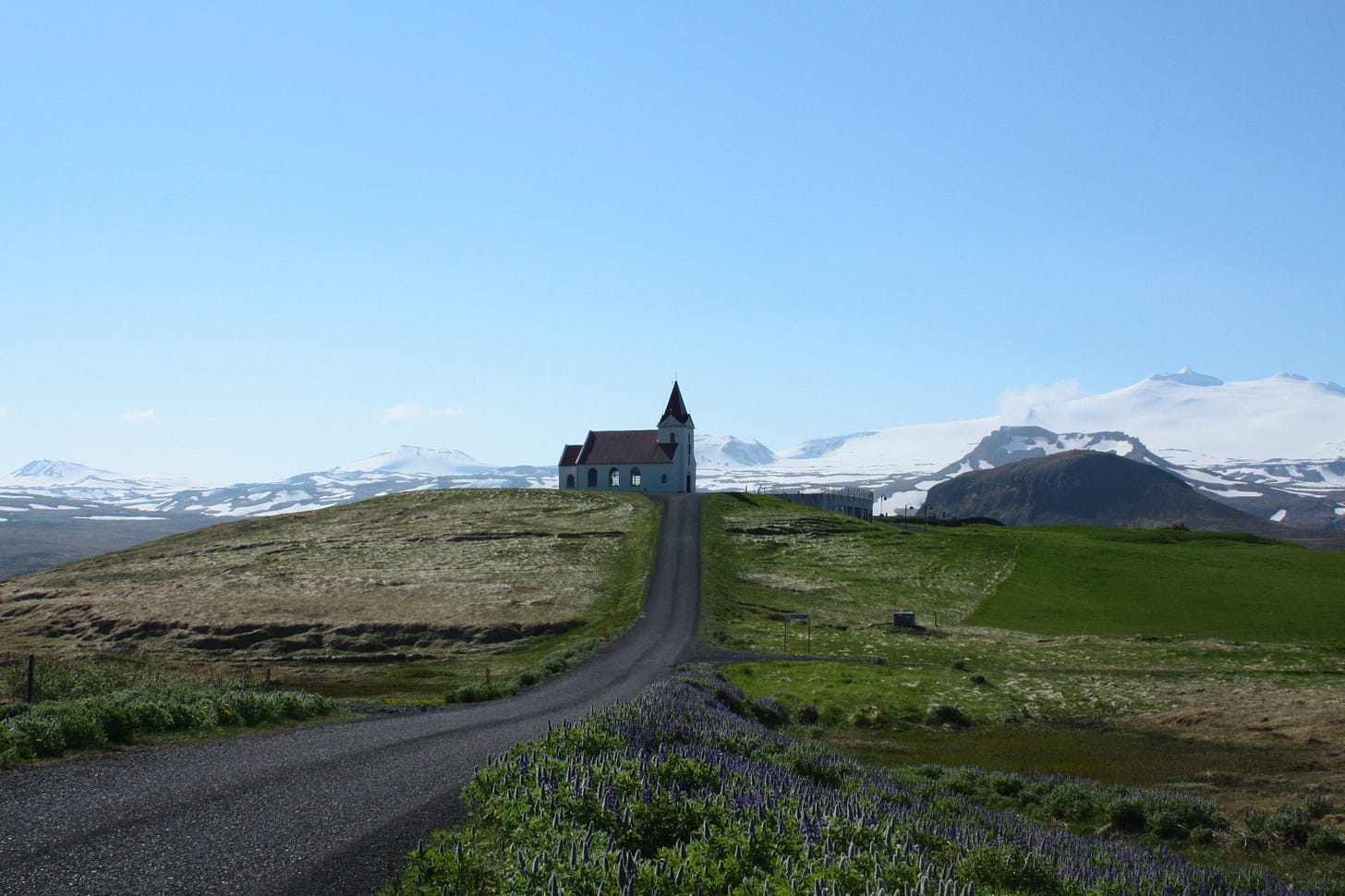Among members of my income bracket, the worship of international travel has become a way to signal the following things:
I’m interesting
I’m cultured
I’m rich (enough)
So many casual conversations I have now center around travel: what trips are coming up, what trips were just taken, what trips we’re dying to take.
I fall into it as well: I’m hoping we get to go to Austria this spring, and I’m looking forward to it. I have told some people about Vienna, because international travel is always an interesting thing to drop into conversation. Almost no matter where you’re going, people raise their eyebrows and say, “Oh, wow!”
A glamorous sheen has now been applied to you in the conversation; you’re a woman abroad; you’re the kind of chic person who holidays; you are now regarded as a woman who can probably find the best boulangeries in Paris and tell you which tourist traps to avoid and use those enticing-but-possibly-useless packing cubes for maximum efficiency.
I think we’ve elevated all of this travel-worship to an unhealthy state.
Travel is a great privilege that the wealthy have enjoyed and continue to enjoy. Never before in human history have we had such mobility. And it is, of course, enriching and mind-expanding to see a new place, to be filled with new ideas and new cultures, to grow in your global understanding and respect.
But certain aspects of travel, especially international travel, concern me increasingly.
There’s, of course, the enormous environmental burden. Flying anywhere is immensely costly to the environment, generating gob-smacking amounts of carbon emissions—not to mention the impact we have on the land itself and its limited resources.
There’s also the low-grade voyeurism of tourism that troubles me. To spy on the locals. To clog their streets. To disrupt their normal lives with our presence. It’s perhaps why some of my favorite trips are ones that we spend in the woods and away from crowds and the hottest tourist destinations. I’ll live if I don’t do the top 10 things in any given city. As tourism becomes a primary way for wealthy Americans to stay entertained, the list of places desperate for us to stay away grows.
And then there’s the naïve and incessant adulation heaped upon “a different way of life,” a conclusion drawn from a few days of limited observation by a rich tourist. It’s a commonplace remark, after a luxury vacation, to gush about how long the Italians take to eat their gorgeous meals and how bike lanes in Amsterdam have solved every social ill. The standard line is that life is just better there.
But everything looks calm and romantic when you’re a wealthy person on vacation.
Of course life looks better with a glass of wine and a sumptuous meal served to you on a cliffside. Of course these locals seem to have it all figured out, noticing them serve you food and clean your room as you’re back and forth from the hotel and the spa and the tour bus. Of course life feels better and simpler and purer and lovelier when you’re on holiday. You don’t have to make a living there. You don’t have to figure out how to pay rent when rent keeps increasing due to your presence. You don’t have the long cultural and emotional history with that land and its people, with all of its good and bad mixed up together.
I want to be more clear-headed when I travel, especially abroad. I want to stop worshiping travel for travel’s sake. If I set aside the environmental and economic impacts of travel for my entertainment and diversion, I want to also ponder the spiritual impact.
What we are giving up when we focus so much of our yearning on being somewhere else, being somewhere “exotic,” being somewhere “cool”? Even more troublingly, what are trying to escape if our constant desire is to be anywhere but home?
What does it mean to be content where I am? To know the very land on which I live, in all four seasons? To become intimately acquainted with my neighbors? To build affection for and find fulfillment in the food and folkways of my town, unglamorous as they may be?
I’m not claiming that everyone who takes a vacation abroad is guilty of this kind of escapism or this kind of plundering voyeurism. But it does irk me that so much fashionable conversation is about being anywhere but here.
We seem to have lost the ability to love where we are, to be able to know a place—along with its deep and historic failures—and still be able to find affection for it and for the people who live next to us.
For far more eloquent reading on this and on the subject of belonging to a place, I recommend my colleague Zack Bryant’s essay “Fire Monkeys.”
And then some trivial takes, in case there are more of you to offend
People who say they “don’t care about clothes” are lying. Everyone cares about clothes. What they (typically) mean is that they don’t care about fashion. But my father, who deliberately dresses in ancient T-shirts, cargo shorts with grease stains, and rubber slides held together with duct tape, cares deeply about his clothes. He makes these choices very intentionally, for function (for doing, as he calls it, “grunt work” in his basement lair) and for projected image (to be seen as a man who does not care about fashion).
People who say they “just get dressed for themselves” are also lying. Everyone is wearing clothes for everyone else, too. We can’t help ourselves. We make immediate, often unconscious judgments based on the garments other people wear.
You’re probably wearing heels right now, and they’re killing your feet and your alignment.
Life is too short to use antibacterial soap.
You don’t need to take anything to the dry cleaners. Everything you wear can be washed at home.
Drinking diet soda is way worse for you than drinking a straight-up regular soda.
Listening to people talk about their travel is like listening to people talk about their dreams. It’s incredibly boring.
Currently reading
From Dawn to Decadence, Jacques Barzun
A Village Life, Louise Glück
Things I Don’t Want to Know, Deborah Levy




